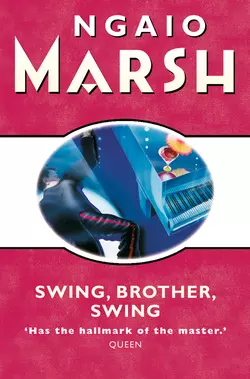Swing, Brother, Swing

Ngaio Marsh
Тип: электронная книга
Жанр: Современная зарубежная литература
Язык: на английском языке
Стоимость: 152.86 ₽
Статус: В продаже
Издательство: HarperCollins
Дата публикации: 16.04.2024
Отзывы: Пока нет Добавить отзыв
О книге: Another classic Ngaio Marsh novel reissued.The music rises to a climax: Lord Pastern aims his revolver and fires. The figure in the spotlight falls – and the coup-de-théatre has become murder… Has the eccentric peer let hatred of his future son-in-law go too far? Or will a tangle of jealousies and blackmail reveal to Inspector Alleyn an altogether different murderer?